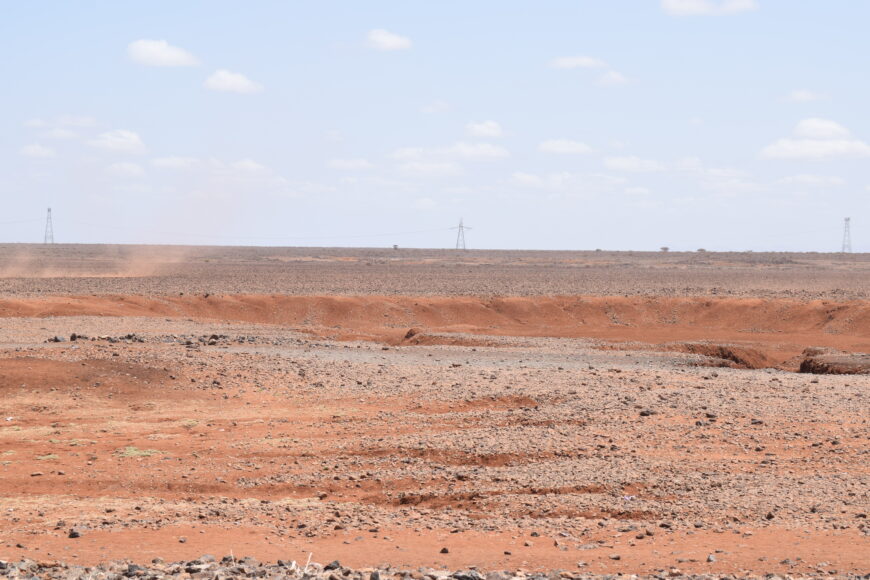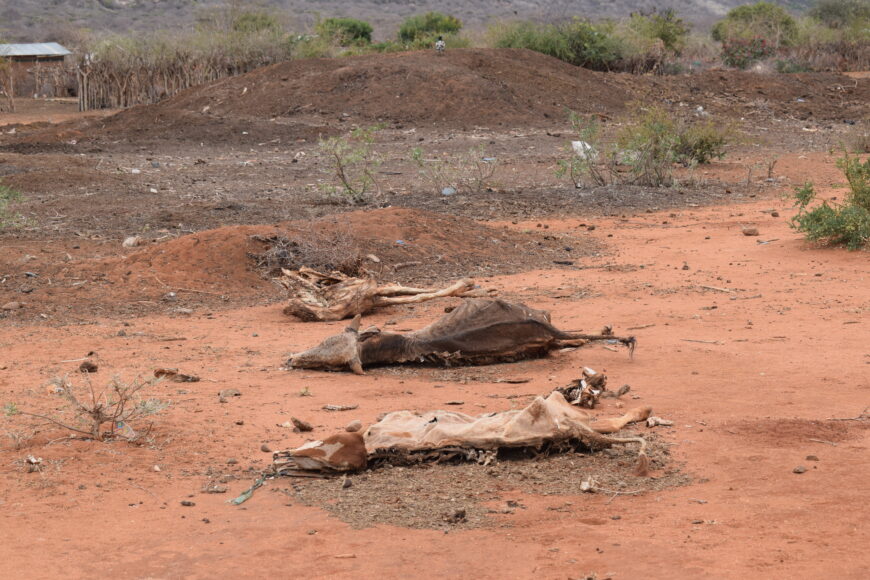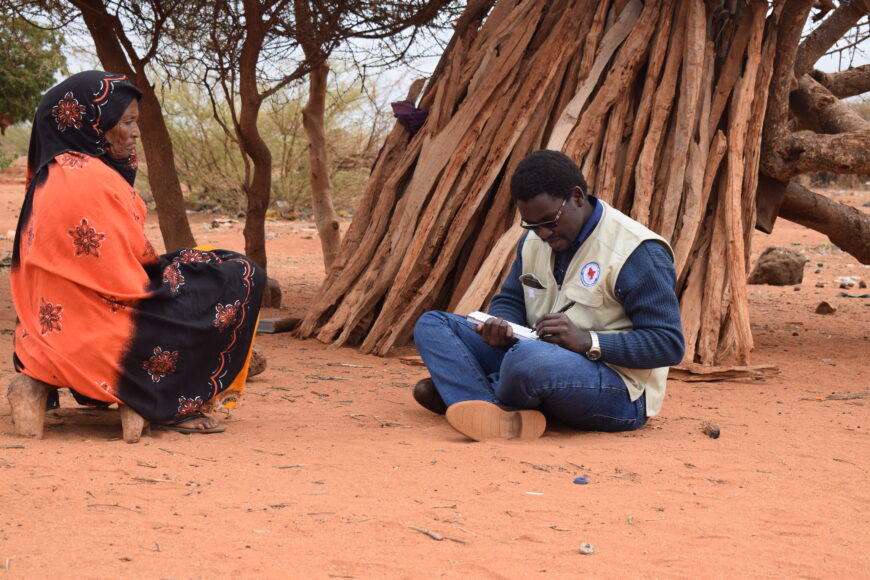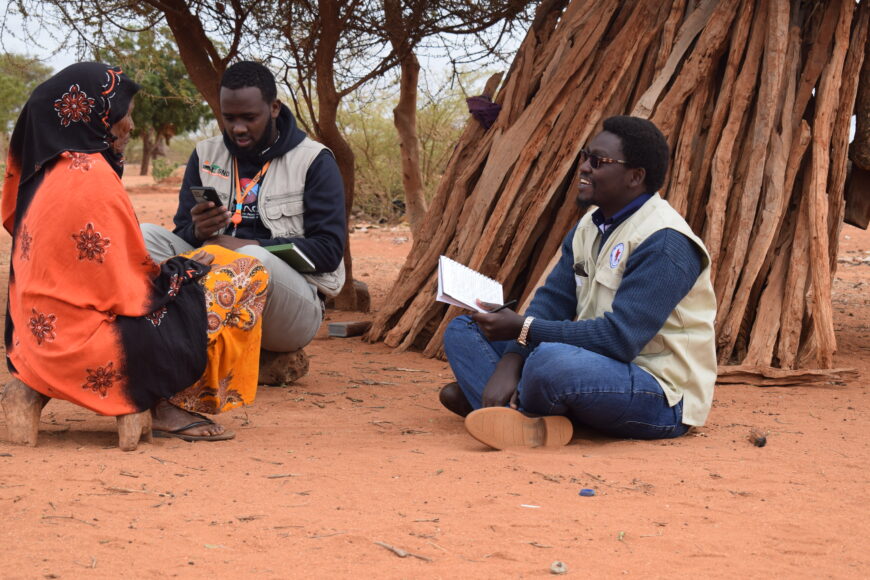In August 2022 in Marsabit County, approximately 95% of open water sources were depleted in all the livelihood zones. The four successive rainfall deficits and intense livestock migration have accelerated rapid deterioration of pasture across the livelihood zones. This situation is likely to worsen as the drier-than-usual conditions persist, and households are more likely to resort to crisis coping strategies to deal with immediate food deficit. This may include reducing the number of meals and portion sizes, sending children to eat elsewhere, reducing expenditures on healthcare, selling more animals than usual, and resorting to borrowing food.
The Kenya Cash Consortium
The KCC —funded by the Directorate-General for European Civil Protection and Humanitarian Aid Operations (DG-ECHO)— is providing multi-purpose cash assistance to food insecure households impacted by the drought in five Arid and Semi-Arid Land (ASAL) counties in Kenya. The intervention builds on existing drought response by KCC partners, under an anticipatory action. As such, the action capitalizes on economies of scale from an ongoing response, whilst extending support to vulnerable drought-affected households in the counties. In Marsabit county, ACTED’s local partner, Strategies for Northern Development (SND), is in charge of the cash distribution.
Supporting female-headed households
We drive south for sixty kilometers, from Marsabit Town towards El-bor village. Along the road, piles of rocks lie under the unforgiving sun. Cross winds pushing across the bare plains dotted with acacia trees make the silence in our car seem heavier as we approach the village.
The car veers off onto a bumpy dirt road from the Marsabit-Moyale highway to meet Abdia Noor, who resides in El-bor village in Marsabit North. She is a 67-year-old widow and mother of four. True to her nomadic lifestyle, Abdia indicates that she would be looking out after her goats while settling into her compound. But we notice that the glow on her face is fading as she reports that the ongoing drought has decimated her livestock. She explains that the remaining thirty animals is a hundred kilometers away, on the Dukana plains towards the Kenya-Ethiopia boarder. This has directly affected access to animal-based food products that contributed to the family’s food security. In addition, they can no longer sell animals to supplement their income.
Mrs. Noor is supported by ACTED through the Kenya Cash Consortium to address the negative impacts of the ongoing drought. With the cash she was provided, Abdia Noor is able to meet her food needs, seek the medical care needed at her age, and support her children who are going to school. She also mentions that the cash transfer project has allowed her to pay off her debt at the local village shop. In addition, her credit rating has improved, so she can buy items on credit in the shop while waiting for the next cash transfer cycle.
Provision of cash assistance to tackle food insecurity, nutrition, health and protection concerns
Through the provision of multi-purpose cash assistance, the action addresses the economic barriers to food security and generates positive nutrition, health and protection outcomes, since the cash transfer amount is spent by the family to meet their basic needs. As a woman, Mrs. Noor has to provide water, food, and fuel for cooking and heating, as well as caring for her children. Supporting her therefore also means ensuring that her four children are healthier and meet their nutrition needs. In addition to household chores and caring for children, women actively engage in livelihood production, doing most of the agricultural work and contributing to production for consumption and sale.
Targeting the five most drought-affected counties in Kenya




